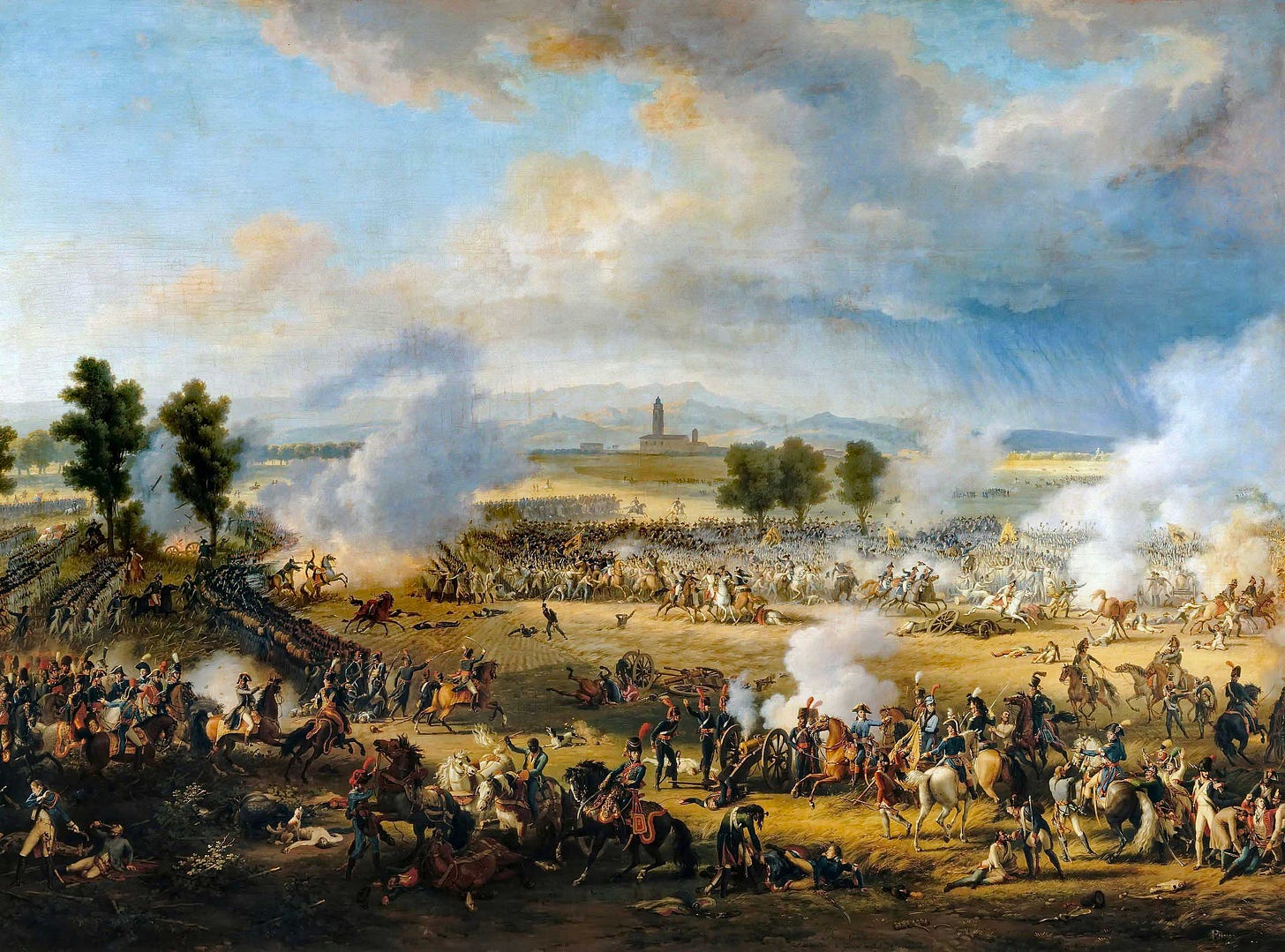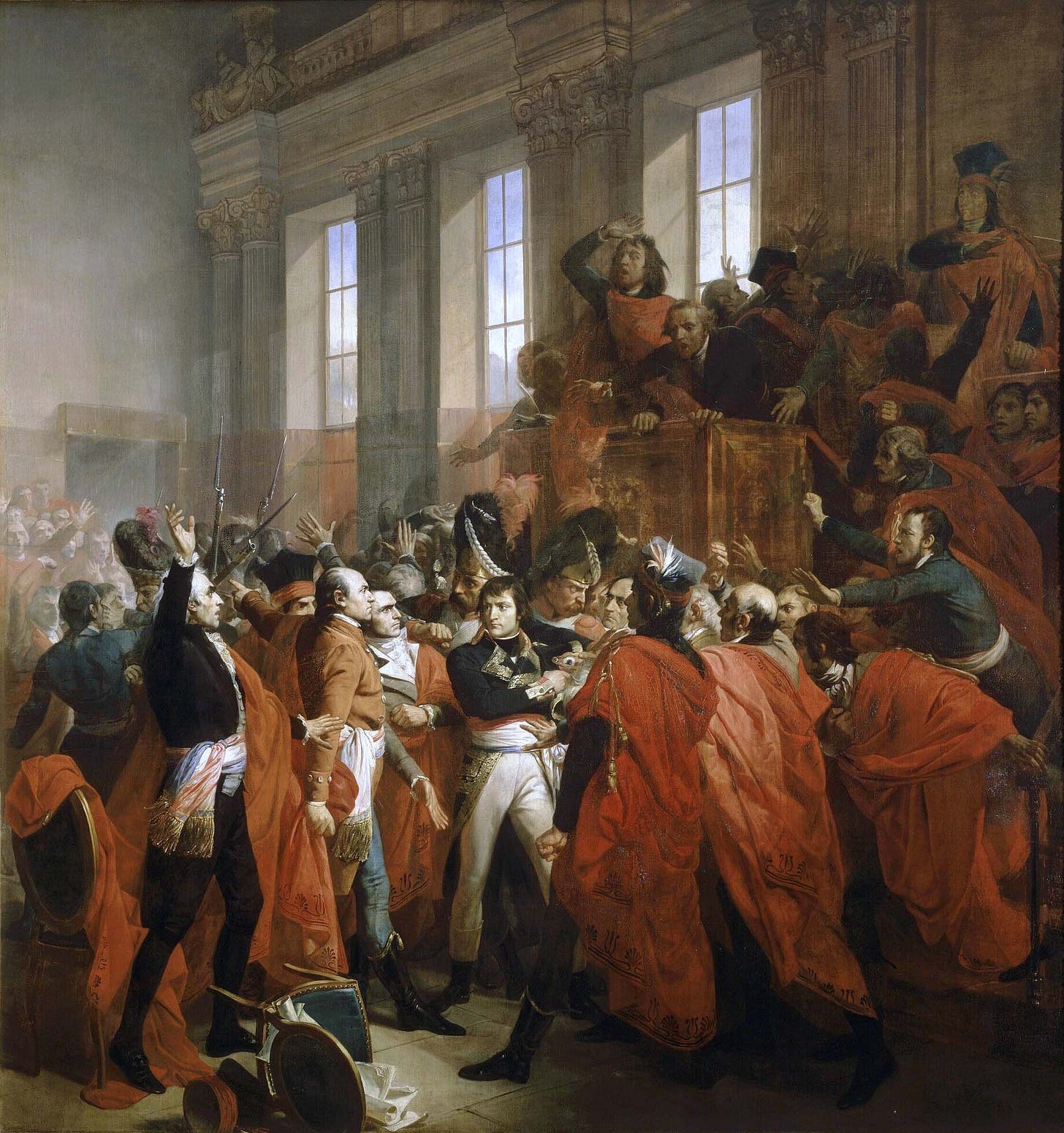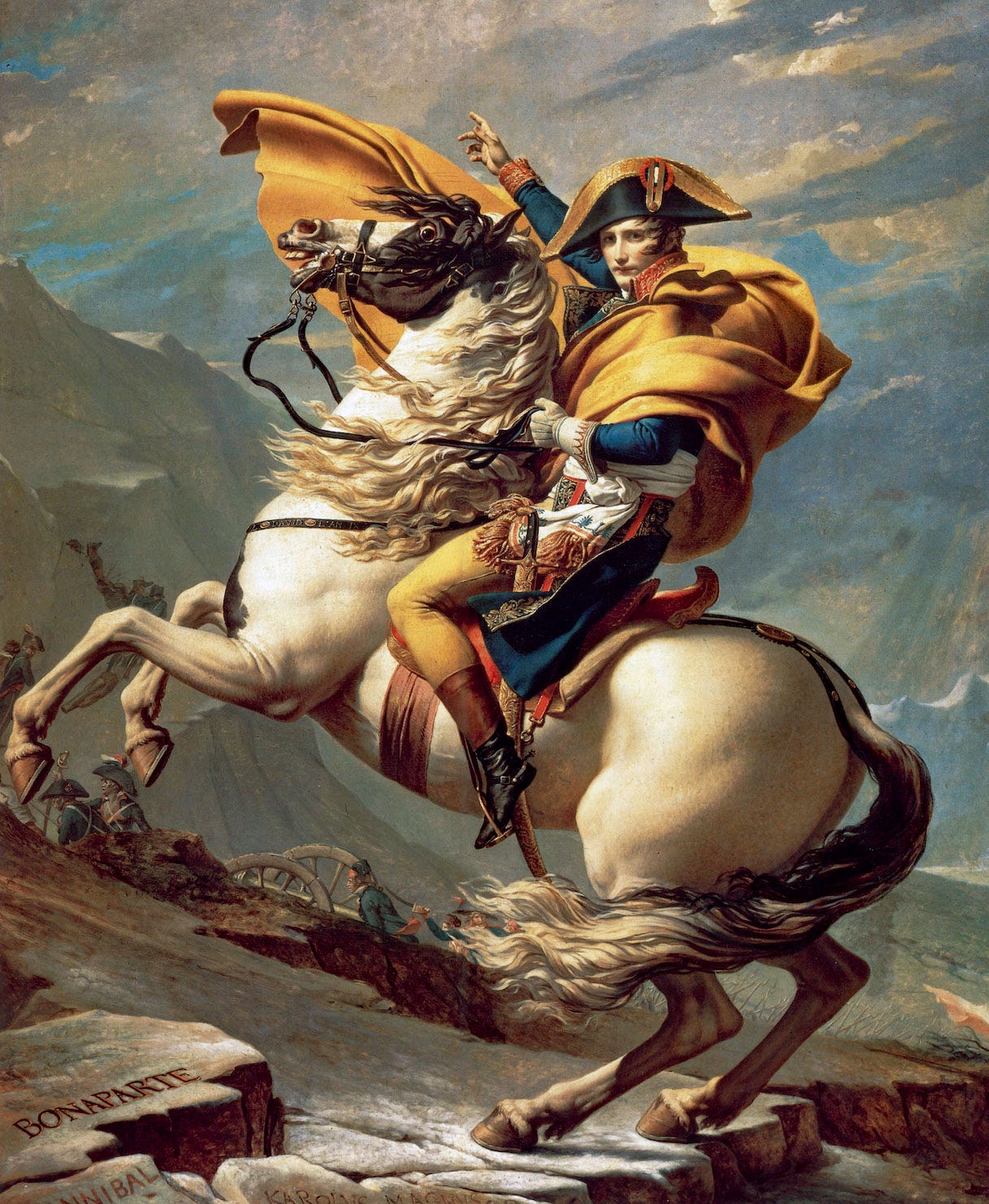Napoleon's Closest Call
What you can learn from the battle that almost cost Napoleon everything...
225 years ago today, the career of Napoleon Bonaparte was almost ended just months after his rule of France had begun.
Outnumbered, outgunned and outmanoeuvred, and at the time of his greatest political vulnerability, the future emperor faced total disaster on the plains of northern Italy.
Indeed the 14th June 1800 was nearly the breaking — but ultimately the making — of Napoleon. It remains a potent reminder that in war, victory can hinge upon nothing more than perception alone, and that the true measure of leadership lies in how one responds to shock.
Today we explore what Napoleon’s deeds at the Battle of Marengo can teach you about reacting under pressure…
Both a Caesar and a Hannibal?
Ten years after the storming of the Bastille, Revolutionary France was in a curious state in 1799.
Having executed a king on fabricated grounds of tyranny, the National Convention proceeded to exceed all that it had accused Louis XVI of being, unleashing the Reign of Terror upon political enemies, and the ‘infernal columns’ upon the civilians of the Vendée, leaving hundreds of thousands dead.
In turn, the Directory had substituted radical violence for base corruption and mismanagement so severe that in the fall of 1797, France was forced to declare bankruptcy. Indeed the sole crutches propping up the revolutionary junta were the military victories of French generals on the many battlefields it had opened up in Europe, and those of the young Napoleon above all.
By 1799, Bonaparte, having vanquished the armies of Austria in Italy, and led a French army to Egypt, had acquired almost mythical status in a France otherwise starved of public figures to admire. So much so that the stalling of his Oriental expedition was swiftly forgotten, in the face of more pressing worries, as the great coalition of Britain, Austria and Russia bore down upon France and reversed many of her years of conquests.
With the credibility of the Directory in tatters, on the 9th November 1799, a date henceforth remembered as 18 Brumaire, Napoleon outwitted both his adversaries and many of his allies, and made his open bid for power at last. Leading a dramatic coup d’état, the following day he overthrew the Directory and reorganised France into her third revolutionary government — the Consulate. Gone was the rule of committee, and in was the rule of triumvirate. Yet while Jean-Jacques-Régis de Cambacérès and Charles-François Lebrun were afforded the titles of Second and Third Consul, there was little doubt that power truly lay with the First Consul — Napoleon himself.
Yet despite the popular referendum of February 1800, which legitimised the coup by a farcical 99%, Napoleon was grounded enough to know all too well that he possessed many enemies, from royalists to republican idealists. Well did he know, too, that his popularity among the people hung by a fickle thread, the same thread upon which dictatorships are always suspended — the perception of him as a victor.
Three years earlier, Napoleon had shocked the world by leading a rag-tag army to victory in Italy. Now, almost the entirety of those gains had been lost, courtesy of the brilliant campaigns of the Russian General Alexander Suvorov. Yet with him now governor as well as general, all losses of France now reflected upon Bonaparte. Thus in the Spring of 1800, the First Consul was compelled to intervene in Italy for the honour of France and survival of his reputation.
This he would commence with one of the most dramatic moments of the Revolutionary Wars, taking up the baton that had been wielded by Hannibal over two thousand years earlier, and crossing the Alps under arms. Thus on the 20th May 1800, Napoleon traversed the Great St. Bernard Pass, and from the Aosta Valley launched the invasion of Italy anew.
Upon reaching the city of Aosta itself at the head of 40,000 troops, an ebullient Napoleon would write to his elder brother:
“We have fallen like a thunderbolt. The enemy did not expect us and still seem scarcely able to believe it”
Napoleon to Joseph Bonaparte, 24th May 1800
Such bravado was typical of the 1800 campaign, and would almost cost Napoleon everything…






